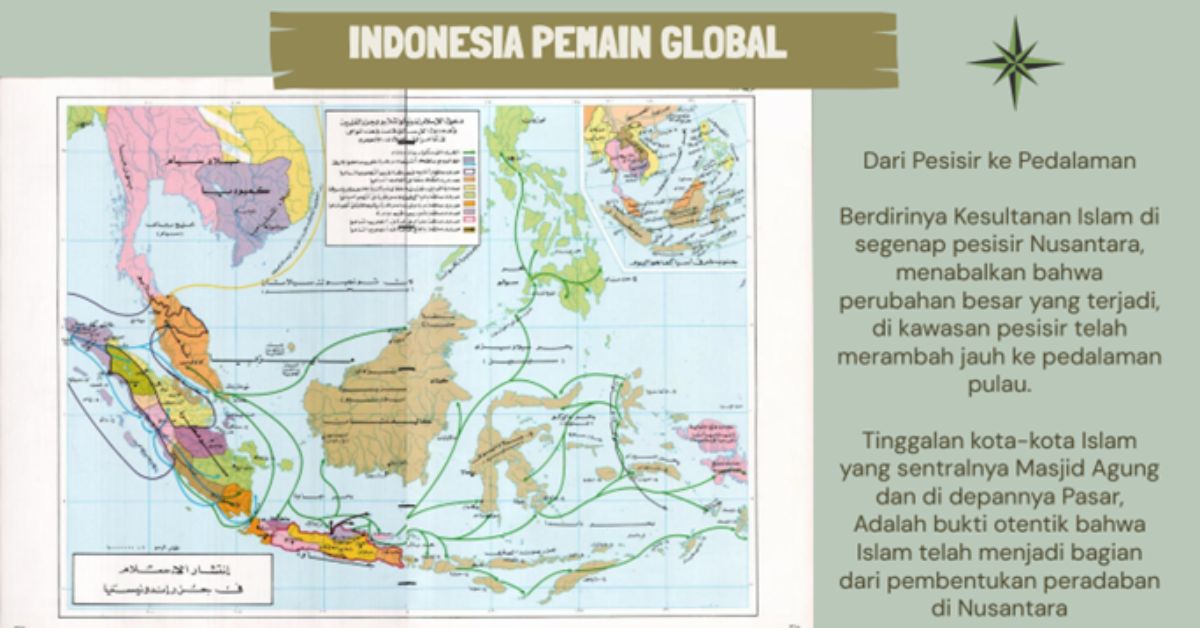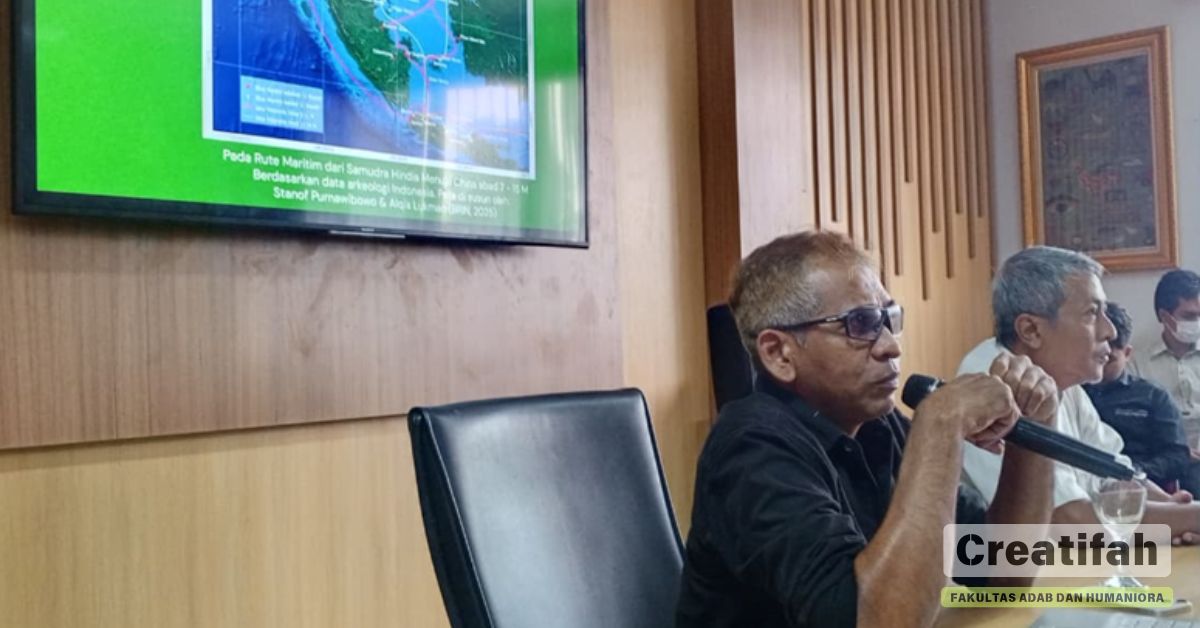Abu Bakar Said, Sultanate Institute Researcher: Nusantara is a Strategic Global Shipping Destination
UIN Jakarta, FAH News Online, 26 September 2025 – The study of material culture continues to enrich the narrative about the beginning of the history of Islamic civilization in the archipelago. In the Studium Generale FAH UIN Jakarta, Abu Bakar Said, researcher and Founder of the Sultanate Institute, explained how artifacts on the West Coast of Sumatra, especially the Bongal Site, have become clear evidence of the islands' active involvement in the global Islamic trade network since the 1st-4th Century H or 7th Century AD. He emphasized that archaeological objects can validate past records while complementing unwritten historical data.
Abu Bakar Said is known as a researcher who focuses on the study of the pre-modern Indian Ocean, global history, and the early interactions of Islam in the region. He is currently completing his master's thesis at the Master of History at Diponegoro University with the relevant title, "The Role of the Pinangsuri Community in the Formation of Global Maritime Networks on the West Coast of Sumatra, 7-10 Centuries M”. Through the Sultanate Institute which he founded, he is active in archaeological research, including excavations of the Bongal Site with BRIN. His commitment to cultural heritage was realized through the establishment of the Fansuri Museum and Fansuri Arboretum in the Bongal area, making him an academic who bridges material data and interpretations of Indonesian maritime history.
This Studium Generale was attended by students from the Doctoral Program in Islamic History and Civilization (S3 SPI), Master of Islamic History and Culture (MSKI) and Master of Arabic Language and Literature (MBSA), FAH UIN Jakarta. Dean of FAH, Dr. Ade Abdul Hak, in his speech emphasized the importance of synergy between cross-disciplinary studies and publications through the academic studies carried out. Abu Bakar Said began his exposure by analyzing the factors that triggered the rise of global maritime trade. He said that the restoration of security conditions after the Roman-Persian wars and the emergence of new powers in the Islamic world in the 7th century AD were the determining factors.
The stability and spread brought by Islamic rule was marked by the declaration of security guarantees in vital commercial areas and the revitalization of strategic infrastructure, such as the Qulzum Canal and improvements to Red Sea and Persian Gulf ports. These measures effectively opened the maritime corridor of the Indian Ocean–Mediterranean Sea. Islamic World Trade, driven by increasing demand for commodities, Islamic economic standardization, and shipping technological innovation, became the main motor connecting the Mesopotamian region to China.
Through archaeological data, researchers who focus on pre-modern Indian Ocean studies place the archipelago as an important player. Findings of ceramics from the Tang Dynasty (618-907 AD), fragments of perfume glass bottles, and various types of resin (including Barus Chalk, Frankincense, and White Meranti) in Bongal show that this area has become a center of industry and trade to meet the demand for aromatic commodities and medicines from Islamic cities. These local resins, along with the findings of early Islamic medical and chemical instruments, indicate intensive collaboration and interaction with large areas of the Islamic World.
Other strong material evidence highlighted is the Umayyad Dirham Daulah Coin minted in 81 AH/700 AD in Damascus, as well as the discovery of the Kohl Stick (a cosmetic device). These coins and artifacts, along with West Asian ceramic finds at Bongal, are strong indicators of direct maritime interactions between the Middle East, Indian Ocean, Southeast Asia and China between the 7th century AD and the 10th century AD. This evidence supports the view of the region's involvement as a major player in global maritime networks at that time.
This material data opens up significant research opportunities for Masters (MSKI, MBSA) and Doctoral (SPI) students at FAH UIN Jakarta. Artefactual evidence from the 7th century AD challenges academics to review global commercial networks, the interactions of the Islamic world and the role of empires in the archipelago. Material culture studies can be a foundation for interdisciplinary research, allowing students to analyze the socio-cultural context of artifacts, explore linguistic aspects of inscriptions, and produce academic narratives supported by material culture evidence.
By: Faizal Arifin
Documentation:

Archipelago in Global Network
(Source: Abu Bakar Said, 2025)

